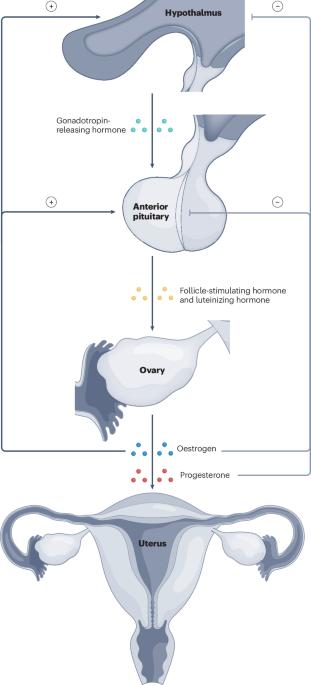Menopause and gastrointestinal health and disease
IF 51
1区 医学
Q1 GASTROENTEROLOGY & HEPATOLOGY
引用次数: 0
Abstract
Menopause has far-reaching effects on human physiology, including the gastrointestinal tract, and can negatively influence the quality of life of women who are affected. Menopause can have multiple effects on gastrointestinal function, including altering gut motility and changing the composition of the gut microbiota. As a result, some gastrointestinal and hepatic conditions are more common among individuals in peri- and postmenopause, and people with these conditions before menopause might also experience greater symptom severity and worse health-related quality of life during this time. The use of hormone replacement therapy to treat menopausal symptoms might also affect gastrointestinal health and well-being. Individuals in postmenopause are at risk for bone remodelling and osteoporosis due to ageing and loss of sex hormones. However, secondary osteoporosis can also occur due to medications used to treat gastrointestinal conditions (for example, glucocorticoids and other immunosuppressive medications) and the conditions themselves (for example, autoimmune disease or coeliac disease). Although all people who menstruate will eventually transition to menopause, there are relatively few studies evaluating the effect of menopause on gastrointestinal symptoms and quality of life. This Review aims to summarize available evidence and highlight areas where research is needed. Menopause affects human health and quality of life. This Review focuses on the effects of menopause and hormonal replacement therapy on gastrointestinal and liver disease, discusses osteoporosis in this context and identifies gaps in clinical research.


更年期与胃肠健康和疾病
更年期对人体生理,包括胃肠道有深远的影响,并可能对受影响妇女的生活质量产生负面影响。更年期会对胃肠功能产生多重影响,包括改变肠道运动和改变肠道微生物群的组成。因此,一些胃肠道和肝脏疾病在绝经前后的个体中更为常见,而在绝经前患有这些疾病的人在此期间也可能会经历更严重的症状和更差的健康相关生活质量。使用激素替代疗法治疗更年期症状也可能影响胃肠道健康和福祉。绝经后的个体由于衰老和性激素的丧失而面临骨重塑和骨质疏松症的风险。然而,继发性骨质疏松症也可能由于用于治疗胃肠道疾病的药物(例如糖皮质激素和其他免疫抑制药物)和疾病本身(例如自身免疫性疾病或乳糜泻)而发生。尽管所有月经来潮的人最终都会过渡到更年期,但评估更年期对胃肠道症状和生活质量影响的研究相对较少。本综述旨在总结现有证据并突出需要研究的领域。
本文章由计算机程序翻译,如有差异,请以英文原文为准。
求助全文
约1分钟内获得全文
求助全文
来源期刊
CiteScore
52.30
自引率
0.60%
发文量
147
审稿时长
6-12 weeks
期刊介绍:
Nature Reviews Gastroenterology & Hepatology aims to serve as the leading resource for Reviews and commentaries within the scientific and medical communities it caters to. The journal strives to maintain authority, accessibility, and clarity in its published articles, which are complemented by easily understandable figures, tables, and other display items. Dedicated to providing exceptional service to authors, referees, and readers, the editorial team works diligently to maximize the usefulness and impact of each publication.
The journal encompasses a wide range of content types, including Research Highlights, News & Views, Comments, Reviews, Perspectives, and Consensus Statements, all pertinent to gastroenterologists and hepatologists. With its broad scope, Nature Reviews Gastroenterology & Hepatology ensures that its articles reach a diverse audience, aiming for the widest possible dissemination of valuable information.
Nature Reviews Gastroenterology & Hepatology is part of the Nature Reviews portfolio of journals.

 求助内容:
求助内容: 应助结果提醒方式:
应助结果提醒方式:


